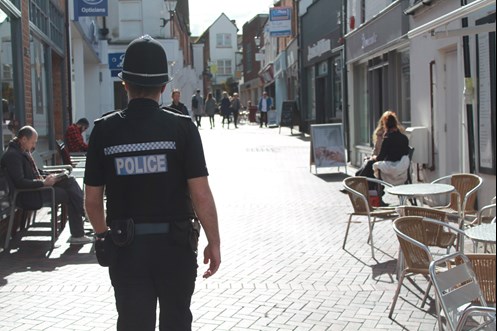Single crewing leaving officers in vulnerable situations
15 March 2017
Seven out of 10 police officers have said they were single-crewed either often or always in the last 12 months
The Police Federation of England and Wales said: "Officers are frequently ending up in vulnerable situations with little or no back up and from a welfare perspective, this is unacceptable."
Looking at other work patterns, many officers reported frequently having to work overtime (with the shortage of officers in their team or another team being the most common reason cited by a third). A fifth (22%) said they routinely work 10 hours per shift.
The research - from a survey of 16,000 police officers across England and Wales - also found that three in four officers (76%) have had two or more rest days cancelled in the previous year. More than half (53%) reported that they are never or rarely able to take their full 45 minute rest break entitlement; while
A 14% fall in officer numbers over a seven-year period from a high of 144,353 in 2009, to 122,859 in 2016, is having significant repercussions.
John Murphy, PFEW’s Health and Safety secretary, said: “Our survey highlights how the reduction in police numbers (by 20,000 in seven years) is taking a toll on officers. They could be more tired because of not taking breaks or they are working longer without a day off.
“When rest days are cancelled this impacts on family life and childcare. It means officers are less likely to want to develop a specialism like public order or Taser, as this might increase the chances of having days off cancelled or shifts moved around.”
On the emotive issue of being single-crewed, Mr Murphy said: “Apart from the lack of interaction, it is more stressful because there is no support if a situation escalates and when something goes wrong, back-up could be miles away.”
He said the accumulative effect of all of this is that officers become more tired and stressed and “fall out of love with the job”. He added: “PFEW is looking at the results of the survey and will make recommendations to police forces and the Home Office.”















